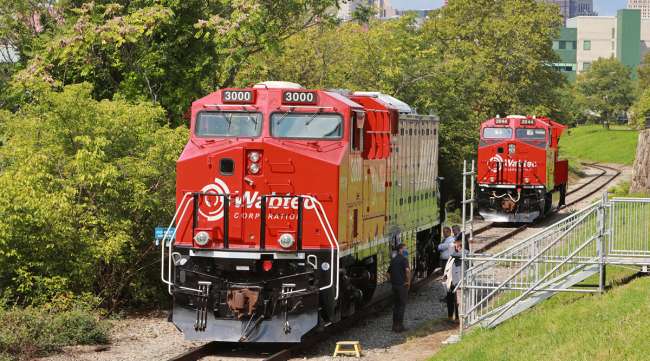Locomotive Manufacturer, Union Agree to End Two-Month Strike

[Stay on top of transportation news: Get TTNews in your inbox.]
ERIE, Pa. — The country’s largest locomotive manufacturer and its striking union workers have reached a tentative agreement that could end a two-month strike that saw about 1,400 people walk off the job at its Pennsylvania plant.
Pittsburgh-based Wabtec announced the agreement with Local 506 of the United Electrical, Radio and Machine Workers of America on Aug 30. The company said it calls for wage increases, improves the grievance process and provides other benefits, but it did not disclose specific details.
The tentative agreement also maintains a two-tier wage system at the Erie plant that allows the company to pay new hires less money and gradually raises their pay to match those of so-called legacy employees, according to the Wabtec statement.
The deal includes successive hourly wage increases of at least 3% upon ratification in each of the coming three years and a $1,500 lump sum ratification bonus.
A message seeking comment was left Aug. 30 for Scott Slawson, president of Local 506. The company said a vote on ratification was expected Aug. 31.
Wabtec acquired the plant and the rest of General Electric Transportation in February 2019. A facility in Fort Worth, Texas, is the company’s primary locomotive manufacturing plant in the U.S. Wabtec is short for Westinghouse Air Brake Technologies Corp.
Strikes and labor unrest have occurred in numerous spots around the United States this summer, in industries ranging from Hollywood actors and writers to delivery drivers and city employees and airline pilots. More and more, employees are feeling overworked and underpaid as companies seek to appease customer expectations for speed and convenience made worse by the COVID-19 pandemic.
Wages that unions contend have fallen behind, in part because of inflation, have been central in negotiations, for example between the Teamsters union and UPS and between the United Auto Workers and U.S. automakers.
Want more news? Listen to today's daily briefing below or go here for more info:




